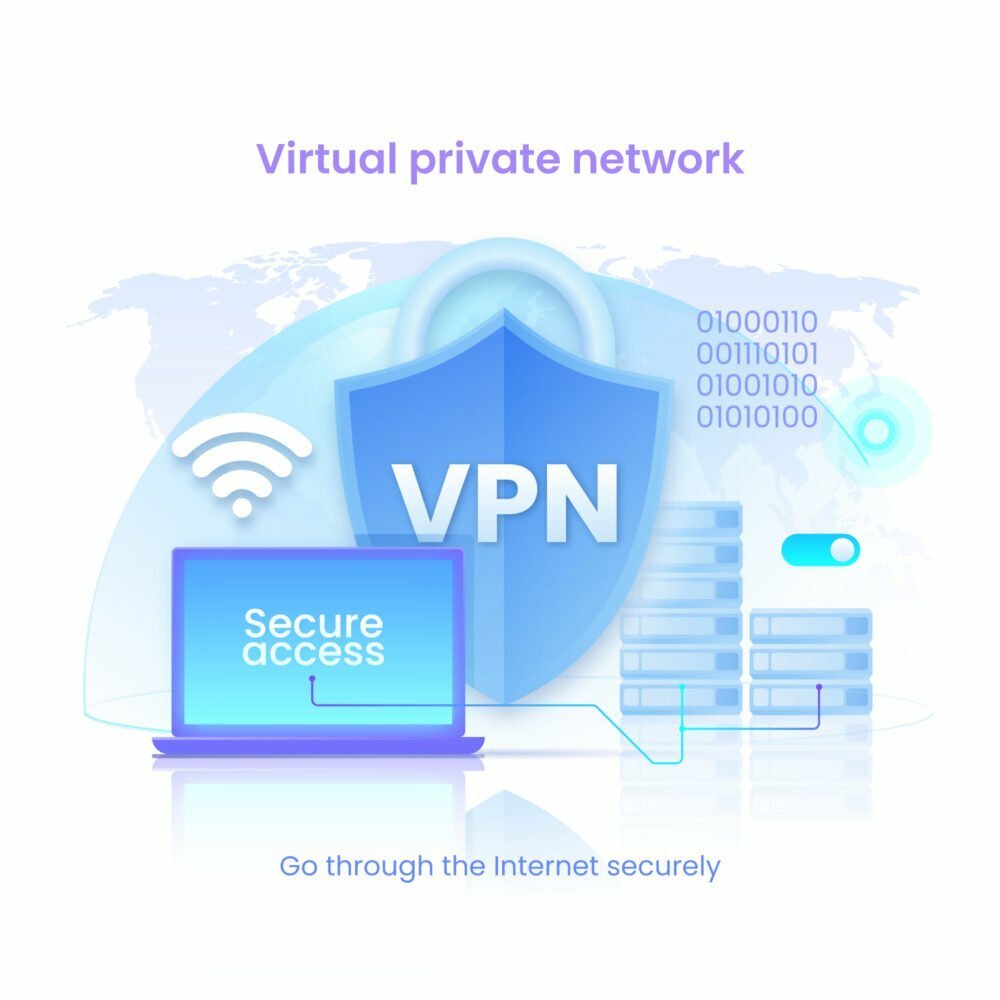VPN: Its Benefits and Consequences
- November 17, 2022
- by
- Xavi
A VPN, or Virtual Private Network, is a private network that encrypts and tunnels Internet traffic and allows users to remain anonymous. A VPN is created by setting up a virtual point-to-point connection through dedicated connections, virtual tunneling protocols, or traffic encryption.
A VPN can be used for many different purposes. One everyday use is to help keep communications private between two parties. For example, businesses often use VPNs to communicate with remote employees or customers without revealing their true identity or location. Another everyday use is to circumvent internet censorship. By connecting to a VPN server in another country, users can access websites and content that may be blocked in their own country.
However, there are also some risks associated with using a VPN. First, choosing a reputable VPN service is crucial to avoid security vulnerabilities.
How VPNs Work
Using a Virtual Private Network (VPN) is becoming increasingly popular regarding online privacy. A VPN encrypts your internet traffic and routes it through a server in another location, making it appear like you are accessing the internet from that server. This can have several benefits, including hiding your IP address and location and bypassing government censorship. However, there are also some potential consequences to using a VPN, such as decreased internet speed and increased security risks.

The Pros of Using a VPN
A VPN is a tool that helps keep your online activity private and secure. When you connect to the internet through a VPN, your traffic is encrypted and routed through a secure server. This makes it difficult for anyone to track or intercept your data.
There are many benefits to using a VPN, including improved security and privacy, bypassing internet censorship, and accessing geo-blocked content. However, there are also some risks to using a VPN. These include potential security vulnerabilities and decreased internet speeds.
Overall, the pros of using a VPN far outweigh the cons. A VPN is worth considering if you are concerned about online privacy and security.
The Cons of Using a VPN
Though there are many benefits to using a VPN, there are also several cons. Perhaps the biggest con is that using a VPN can slow down your internet connection. This is because your data has to travel further and go through more servers when you use a VPN. Free VPNs often have data or bandwidth limits, which can also slow down your connection. Another downside to VPNs is that they can be less secure than other methods of protecting your data, like a proxy server. This is because it’s easy for someone to intercept your data if they know which server you’re connecting to. Finally, some countries block VPN access, so if you’re trying to use a VPN in one of these countries, you won’t be able to.
Who Should Use a VPN?
A VPN can securely connect to a Wifi network, protect your privacy when browsing the internet, and even spoof your location to access geo-restricted content. But who should use a VPN?
There are many reasons why someone might want to use a VPN. You may work from home and want to securely connect to your company’s internal network. Or you’re concerned about online privacy and want to browse the internet anonymously. Try accessing geo-restricted content like Netflix or BBC iPlayer from abroad.
Whatever your reason for using a VPN, there are benefits and consequences to consider. On the one hand, a VPN can give you increased security and privacy online.
How to Choose a VPN
This can be useful if you want to access geo-restricted content or keep your browsing activity private. But not all VPNs are created equal. Here’s how to choose a VPN that’s right for you.
When choosing a VPN, there are a few things to remember. First, consider what you want to use the VPN for. If you wish to unblock websites, you don’t need an exceptionally robust VPN. However, you’ll need a VPN with strong encryption if you want to ensure your privacy while browsing.
Secondly, take a look at the security features of the VPN. A good VPN will offer both military-grade encryption and an automatic kill switch.
Conclusion
There are many benefits to using a VPN but also some potential drawbacks. First, you need to consider the VPN s features. Does it have good encryption? Is it easy to use? Can you get an app for your device? If a VPN does t meet these basic requirements, it is t going to help keep your information safe. Second, you need to decide how much you’re willing to pay. Some VPNs are free, but they generally have privacy flaws that make them unsuitable for most people. If you want the best VPN, you’ll need to pay for it. But, if you are willing to spend just a bit of money and don t mind having some vulnerabilities in your software, then a free VPN can help. Just be careful, though.
Overall, using a VPN can be a great way to improve your online privacy and security. However, choosing a reputable VPN provider and being aware of the potential risks is essential.





